Dr. Masoud Soleimani: A case of US contempt for human rights
By Yuram Abdullah Weiler
The prominent Iranian stem cell scientist, Dr. Masoud Soleimani, has been illegally imprisoned in the United States for over a year with no end to his incarceration in sight. Among the top research scientists in his field, Dr. Soleimani was invited by the prestigious Mayo Clinic to spend a research sabbatical when upon his arrival he was detained by US authorities and has been held without trial in Atlanta in the US state of Georgia ever since.
A professor in the Department of Hematology at the Tarbiat Modarres University in Tehran, Dr. Soleimani obtained his Ph.D. in 2004 and has over 100 research articles and 7 monographs to his credit. A member of the International Society of Stem Cell Research and the European Hematology Association, he also has been the Secretary of Medical Naonotechnology in Iran’s Ministry of Health since 2006. Before the untimely interruption of his vital work, Dr. Soleimani was supervising seven doctoral students and over ten master’s students in various areas of specialization within hematology and medical biotechnology.
Dr. Soleimani’s research interest lies in the area of stem cells, which form the raw building material of the multitude of specialized cells in the human body. Stem cells create so-called daughter cells, which develop into brain, bone, blood, muscle and all other cells with specific functions. Scientists study stem cells to understand how these body tissue building blocks transform into their specialized functions with the goal of understanding and duplicating the process in the laboratory. In this way, scientists may eventually be able to use stem cells to replace diseased, damaged or worn out cells in the human body, thus curing previously incurable diseases, such as Parkinson's disease, amyotrophic lateral sclerosis, Alzheimer's disease, heart disease, stroke, burns, cancer and osteoarthritis.
Why would a world-class scientist of the caliber of Dr. Soleimani be detained by the US? It would appear that he, along with two of his former research students, Mahboobe Ghaedi and Maryam Jazayeri, stands accused of “smuggling” eight vials of proteins used to culture cells out of the US without the necessary export licensing from the US treasury department’s Office of Foreign Assets Control (OFAC). While his former students were allowed to go free after posting bail bonds, the Doctor remains incarcerated. The charges against Soleimani and his former students are clearly of a political nature, since legal experts have stated that the vials of growth hormones are used for medical purposes and thus should have been exempt from requiring a license for export. At worst, the matter should have been treated as a regulatory case with an imposed fine rather than a criminal case, since no evidence has been presented that the scientists had attempted to hide the vials.
Certainly Dr. Soleimani represents a valuable pawn in Washington’s great game with Tehran, but aside from this, there may be another reason for this obvious politically motivated detention. The United States is lagging behind other nations in stem cell research due to the actions George W. Bush who vetoed funding bills for stem cell research in 2006 and 2007. While it is true that Barack Obama attempted to reverse this trend by authorizing funding and encouraging research activity, his successor once again pulled funding and brought research essentially to a halt. “It’s a decision that’s going to set back research,” said Andrew McMahon, a stem-cell biologist at the University of Southern California in Los Angeles. New research grants under the Trump regime’s reactionary policy will be reviewed by an “ethics board,” the majority of whose members will not be scientists with credentials in the field.
Meanwhile, thanks to the work of prominent scientists like Dr. Soleimani, the Islamic Republic of Iran has taken a leading role in stem cell research. Thanks to the foresight of Ayatollah Seyyed Ali Khamenei, the Leader of the Islamic Revolution, funding and support for stem cell research has been a priority, given the life-saving potential of this technology. This is also partly due to the attitude of Islam towards scientific research in contrast to the fundamentalist Christian perspective dominant in the United States. “Islam is very compatible with the modern sciences,” noted Professor Hassan Ashktorab at the Howard University Cancer Center. “Policies that may be classified as liberal in the American political system seem to be common sense to Iranian politicians.”
The Trump regime has cut government investment in science for the third year in a row, allocating a meager $34.4 billion to the National Institute for Health, the nation’s medical research agency. This sum represents around 0.7 percent of the proposed US fiscal year 2020 budget and a 13 percent reduction from the previous year, about which chief executive of the American Association for the Advancement of Science (AAAS) Rush D. Holt warned that Trump’s funding slashes “would derail our nation’s science enterprise.” Compare this paltry US budget allocation, which represents 0.17 percent of US gross domestic product to that of the Islamic Republic, which spends 0.65 percent of its GDP or about 382 percent more.
So, an underlying motivation of the Washington regime in detaining Dr. Soleimani and denying his basic human rights may be bitter envy of Iran’s scientific progress despite years of economic terrorism by means of vicious sanctions and covert assassinations targeting the Islamic Republic’s brightest and best scientific minds. For his part, Dr. Soleimani had no intention of violating the draconian US sanctions. According this lawyer, Mehrnoush Yazdanyar, “If he’d known or thought or had reason to believe this was illegal, he would not have carried it out.” Incarcerated since October 24, 2018, the 49-year-old top Iranian scientist is not receiving proper medical care for health conditions aggravated by the inhumane and humiliating conditions of his detention in the Atlanta prison. His family has been severely affected by anguish over his unlawful imprisonment, and his mother has already died as a direct result of stress.
The United States has the dubious distinction of being the first nation in our world to withdraw from the United Nations Human Rights Council. But then what can we expect from a country that separates children from their asylum-seeking parents at its borders while scorning worldwide condemnation? What can we expect from a xenophobic regime that gleefully cuts quotas for refugees by 80 percent from the numbers allowed by the previous administration? What can we expect from a Zionist-aligned plutocracy that defunds the United Nations Works and Relief Agency, upon which Palestinians depend for life-giving aid? What can we expect from a nation founded upon slavery and racism, concern about human rights and dignity? No, of course not. All we can expect is lip service to human rights when it suits Washington’s geopolitical objectives. And this is not the case with Dr. Soleimani.

*Yuram Abdullah Weiler is a former engineer educated in mathematics turned writer and political critic who has written dozens of articles on Islam, social justice, economics, and politics focusing mainly on the Middle East and US policies. His work has appeared on Tehran Times, Mehr News, Press TV, Iran Daily, IRIB, Fars News, Palestine Chronicle, Salem-News, Khabar Online, Imam Reza Network, Habilian Association, Shiite News, Countercurrents, Uruknet, Turkish Weekly, American Herald Tribune and Hezbollah. In addition, he has frequently appeared as a guest commentator on Press TV, Al Etejah, and Alalam. A dissenting voice from the “Belly of the Beast”, he currently lives in Las Cruces, New Mexico USA. Weiler wrote this article for the Press TV website.
Araghchi: Iran-Russia strategic deal step toward ‘more just world’
UNRWA unraveled amid Israel's allegations, reduced intl. support
Palestinian journalist, a Sobh Media Festival awardee, killed in Gaza hours before truce
Jan. 15: ‘Axis of Resistance’ operations against Israeli occupation
VIDEO | Fears, hope in Gaza amid intensified ceasefire efforts
VIDEO | Press TV's news headlines
Hamas: Ceasefire agreement result of steadfastness, resistance in Gaza over 15 months
Hamas thanks Iran, Resistance Front following achievement of ceasefire in Gaza





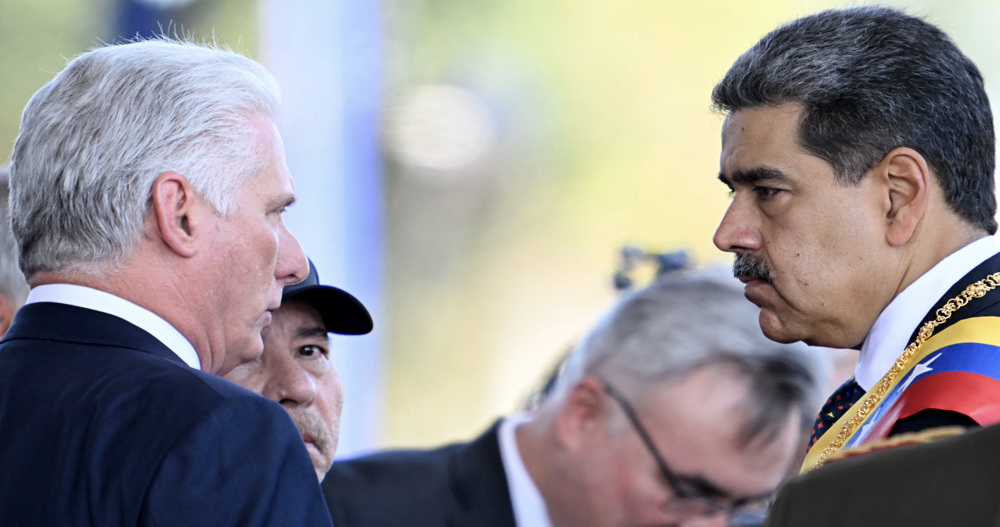






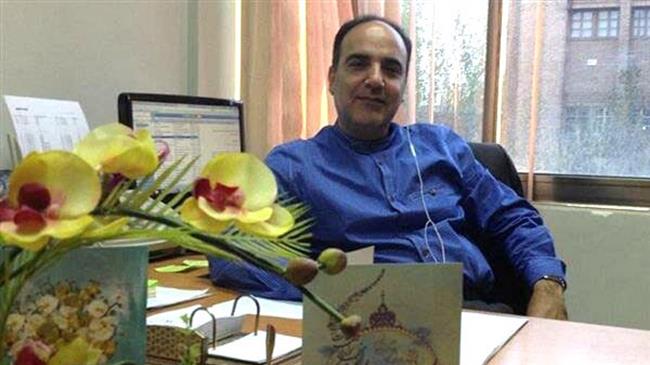
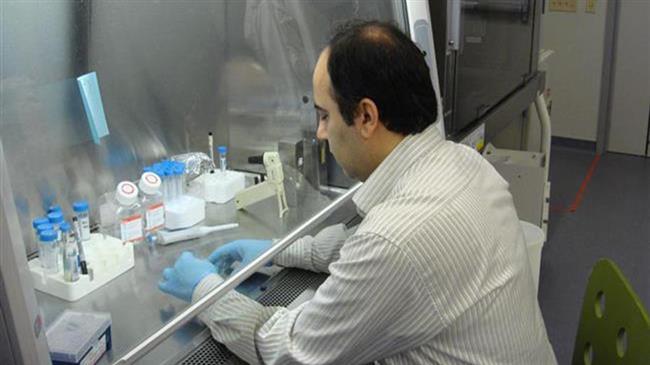
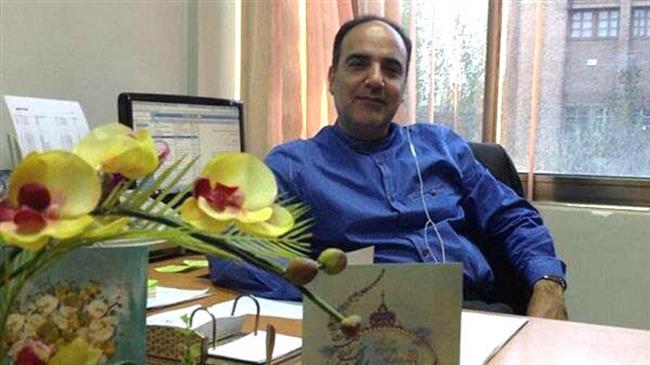

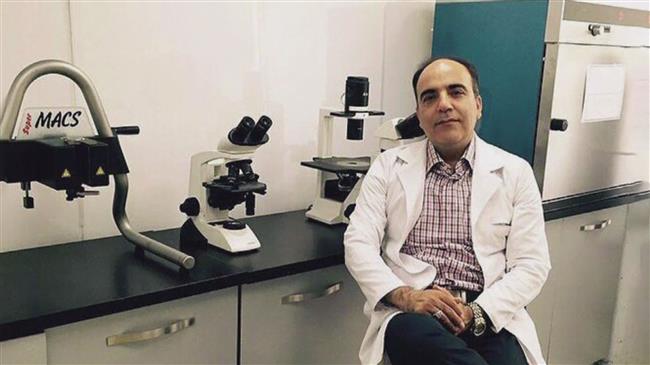

 This makes it easy to access the Press TV website
This makes it easy to access the Press TV website